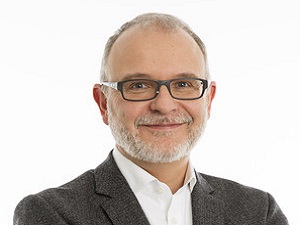Building a digital continent: towards a new model for collaboration
Building a digital continent: towards a new model for collaboration

According to the World Bank's most recent report on Global Economic Prospects, despite the broad global recovery currently underway, Africa still faces substantial downside risks, especially relating to challenges with subdued productivity and potential growth. In response, governments on the continent should look at a combination of improvements in education and health systems, high-quality investment, and labour market, governance and business climate reforms which could yield substantial long-run growth dividends.
While Africa continues its inexorable rise as a global economic powerhouse, its partnerships and collaboration with other nations, regional bodies and continents is coming sharply into play.
Its long history with European public and private sector organisations in particular is gaining widespread traction and attention. And within this, a new partnership model that was adopted at the 8th African European Summit in Abidjan is pointing to a new age of joint progress and prosperity between Africa and Europe.
A new public-private partnership model
A collaboration between several large multinational European technology companies has proposed a new public-private sector governance model aimed at fostering digital transformation for development purposes in key developing regions.
The Digital4Development (D4D) Public-Private Governance Model is aimed at identifying synergies between private sector business activities and European Union development activities with a view to long-term sustainable cooperation. Its first iteration shall be implemented for Africa, with the participation of relevant representatives of the African public and private sector, NGOs, local authorities, communities and people.
The D4D Public-Private Governance Model takes a multi-layer approach to integrate the interests of the various stakeholders involved. At the operational layer, various programs and initiatives are conducted, with members chosen for their relevance to the programs.
One key element is the Expert Groups formed from private sector companies, sectoral directors-general from the European Commission and African Union, as well as European member states and NGOs interested in the sector for which the program is conducted - agriculture, healthcare, education, governance, Smart Cities, Connectivity, etc. The groups will also be open to African countries or regional entities such as SADC or ECOWAS.
The expert groups aim to advise on sector specific development cooperation, advise on sectoral dialogues, and involve relevant regional partners to bring programs to successful outcomes. And at the strategic layer, the D4D Advisory Group will tie into the Sustainable Business for Africa Platform (SB4A) to provide strategic advice and good-practice experience.
In 2016, an External Investment Plan was adopted by the European Commission to catalyse more private investment in African countries with a view to supporting the Sustainable Development Goals. Dubbed the Sustainable Business for Africa (SB4A) platform, it provided an overarching structure for existing and new structured dialogues with the private sector to ultimately contribute to job creation - especially for youth and women - in African partner countries.
Door open for cross-continent collaboration
The combinatorial nature of these initiatives may provide one of the most comprehensive and effective partnership models between African countries and their European counterparts to date and will support them as they strive to achieve the Sustainable Development Goals.
But European companies operating in Africa can already contribute a great deal to the development and digital transformation of the continent.
All signs point to a bright future for Afro-European collaboration and partnership. As we enter a new age of exponential growth and human advancement, initiatives that can bring together public and private role players in an inclusive model while working toward solving some of our biggest present challenges will ensure the sustainability of business and the prosperity of society.
* By Michael Pittelkow, Executive: Economic Development Cooperation at SAP Africa.
